Pain Relief Medications
Showing all 14 results

Pain relief medications are those medicines that provide effective relief from pain. There are two types of pain medicines: prescription pain medicines (opioids, muscle relaxers, corticosteroids) and over-the-counter pain medicines (acetaminophen and nonsteroidal anti-inflammatory drugs).
Each type of pain medication has different side effects and should only be taken with proper consultation with a doctor.
Dealing with short-term or long-term pain can take a toll on your well-being, especially when you feel like there is no way to get rid of the pain. Fortunately, certain pain medicines can be used to provide pain relief.
This blog dives into pain relief medications in detail, exploring their benefits, side effects, and important considerations for safe use.
Introduction To Pain Medication
Pain relief medications, also known as analgesics, are defined broadly as any medication that relieves pain. Many various pain medicines exist, and each one has its pros and cons. Pain medications vary in potency and their mechanism of action and can be administered in different ways, including injections, pills, skin patches, or intravenously [1].
Uses Of Pain Medication
Pain relief medications are used to relieve pain and inflammation. For example [2]:
- For aches and pain like menstrual cramps or muscle soreness.
- For chronic painful conditions such as cancer, back pain, or arthritis.
- Due to injury, such as a fractured bone.
- After surgery
- For acute pain, such as a headache or twisted ankle
Types Of Pain Relief Medication
Pain medications are classified into two types – over-the-counter pain medications and prescription pain relievers [3].
Over-the-counter pain medicines
- Acetaminophen
- Nonsteroidal anti-inflammatory drugs (NSAIDs), including naproxen, ibuprofen, and diclofenac gel.
Acetaminophen and NSAIDs relieve pain and reduce fever caused by muscle stiffness and aches, but only NSAIDs can reduce inflammation (swelling, redness related to an injury, and irritation).
Prescription Pain Relievers
- Corticosteroids – a class of synthetic drugs that have anti-inflammatory properties and are taken as an injection at the site of musculoskeletal injuries.
- Opioids – Opioids are a group of drugs derived from the opium poppy plant and are effective options for pain relief.
- Muscle relaxants – Muscle relaxers are medicines that help relieve muscle spasms (involuntary contractions of muscles) causing pain. They are used to treat conditions like neck pain, back pain, muscle stiffness, and injuries.
- Some antidepressants – Antidepressants such as tricyclics are well known for relieving pain by reducing pain transmission through the spinal cord.
Side Effects Associated With Pain Medications

Different types of pain medications come with their own unique side effects. Side effects associated with various types of pain medications are as follows –
Corticosteroids – Short-term use of corticosteroids can cause mild side effects, but prolonged use can cause side effects including – elevated blood pressure, glaucoma, fluid retention, mood changes, weight gain, elevated blood sugar, gastrointestinal bleeding, cataracts, adrenal insufficiency, bone death, and suppression of the immune system.
Opioids – The use of opioids can cause nausea, vomiting, dizziness, respiratory depression, euphoria, hallucinations, seizures, agitation, dysphoria, urinary retention, sexual dysfunction, non-allergic itching, and drowsiness.
Muscle relaxants – Adverse effects associated with the use of muscle relaxers include headaches, agitation, nervousness, decreased blood pressure, irritability, and dizziness.
Antidepressants – Side effects of antidepressants include lower blood pressure, dry mouth, difficulty urinating, weight gain, fatigue, constipation, and palpitation.
NSAIDs – Side effects of NSAIDs include headaches, allergic reactions, dizziness, drowsiness, indigestion, and stomach ulcers.
Acetaminophen – Side effects include – difficulty breathing or swallowing swelling (face, hands, feet, eyes, ankles, lips, lower legs, tongue, and throat).
Alternatives To Pain Medications
Apart from pain medication, there are other holistic options that may provide effective relief from pain [4].
Turmeric – Turmeric contains curcumin, which is an antioxidant that has the ability to ease swelling and reduce inflammation and pain, especially in conditions related to bones, such as arthritis.
Turmeric is mostly used as a spice, but it is also available in supplement form.
Acupuncture – Acupuncture is an ancient Chinese medical practice that provides relief from pain by balancing the body’s natural energy pathways. It relieves pain by causing the body to release serotonin, a brain chemical that eases pain.
Heat and Ice – A common home remedy to ease pain is applying heat and ice directly to pain sites. Applying ice to reduce inflammation and swelling shortly after you experience a strained muscle, ligament, or tendon may provide effective relief. Once the inflammation has reduced, heat may help reduce the stiffness that comes with strains and sprains.
Precautions And Warnings

Before taking any pain relief medication, remember the following things mentioned below.
- Always consult a healthcare provider before taking any pain medicine. They can recommend the duration and dosage of the medication based on the severity of your condition.
- Take the medicine as prescribed by your doctor and follow all the instructions on the medicine leaflet.
- Dispose of unwanted and expired pain medication safely.
- Before taking any pain relief medication, check its manufacturing and expiry date.
- Do not share your pain medication with a family member or children.
- Avoid stopping the medication suddenly. Talk to your doctor about how to safely stop the use of the medication.
Explore Our Range Of Pain Relief Medication
At Online Pills Store, we retail the following pain relief medication –
Tapentadol
Tapentadol is an opioid pain medication prescribed by doctors to treat severe pain. At Online Pills Store, we retail some of the most popular brand versions of Tapentadol, such as Noosanta 100 mg, Topcynta 100 mg, Tapaday 100 mg and 200 mg, Aspadol Er 200 mg, and Aspadol 100 mg.
Carisoprodol
Soma pill, the brand version of Carisoprodol, is a muscle relaxant commonly used to treat pain and discomfort caused by acute musculoskeletal conditions. At Online Pills Store, we retail a range of Soma pills, including Soma Dol 350 mg, 500 mg, and 750 mg, as well as Soma 350 mg and 500 mg, that help manage pain effectively.
Pregabalin
Pregabalin is a prescription drug used to treat conditions like neuropathic pain and seizures. At Online Pills Store, we provide Nervigesic as a reliable option for Pregabalin, available in various dosage strengths (75 mg, 150 mg, and 300 mg).
Nervigesic 75 mg is suitable for people requiring a lower dose of Pregabalin for mild symptoms. Nervigesic 150 mg is ideal for moderate pain. At the same time, Nervigesic 300 mg is the highest dose of the medications designed for people needing a higher dosage for more severe conditions.
Conclusion
Pain is a major health issue, and there are various treatment options available for relieving pain, including medications. Work with your doctor to find the best treatment option for your specific needs.
FAQs
Does drinking water help with muscle aches?
What are the best pain medications for period cramps?
What are the strong pain relief medications?
References
- Pain Medications, physio-pedia.
- Analgesics, clevelandclinic
- Types of Pain Relief Medications, rxlist.
- Natural Pain Relievers, healthline
-
Sale!
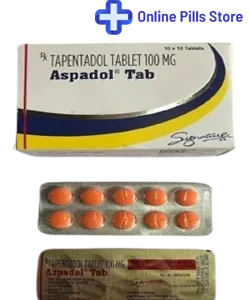
Aspadol 100 mg
$274.00 – $304.00 Buy Now This product has multiple variants. The options may be chosen on the product page -
Sale!
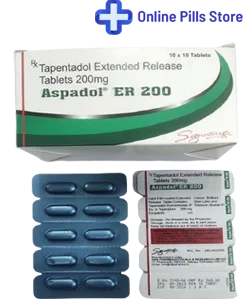
Aspadol ER 200 mg
$199.00 – $279.00 Buy Now This product has multiple variants. The options may be chosen on the product page -
Sale!
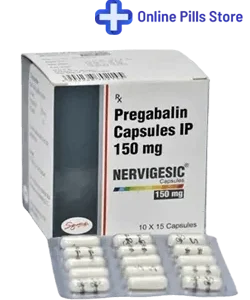
Nervigesic 150mg
$135.00 – $215.00 Buy Now This product has multiple variants. The options may be chosen on the product page -
Sale!
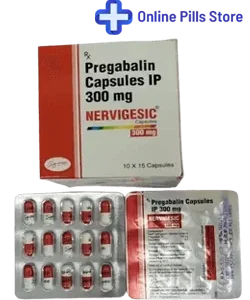
Nervigesic 300mg
$145.00 – $225.00 Buy Now This product has multiple variants. The options may be chosen on the product page -
Sale!
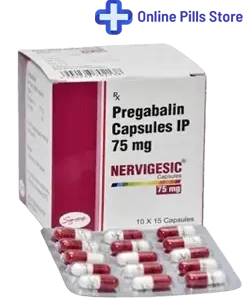
Nervigesic 75mg
$125.00 – $205.00 Buy Now This product has multiple variants. The options may be chosen on the product page -
Sale!
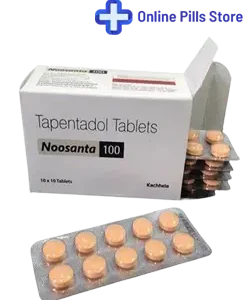
Noosanta 100mg
$169.00 – $249.00 Buy Now This product has multiple variants. The options may be chosen on the product page -
Sale!
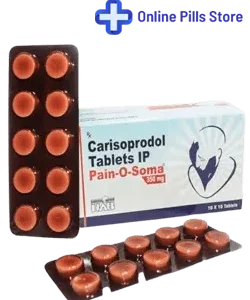
Soma 350mg
$138.00 – $298.00 Buy Now This product has multiple variants. The options may be chosen on the product page -
Sale!
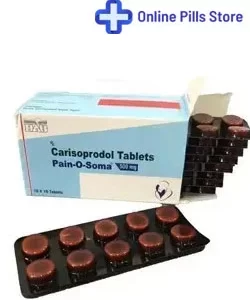
Soma 500mg
$130.00 – $298.00 Buy Now This product has multiple variants. The options may be chosen on the product page -
Sale!
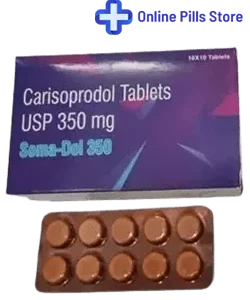
Soma Dol 350 mg
$129.00 – $249.00 Buy Now This product has multiple variants. The options may be chosen on the product page -
Sale!
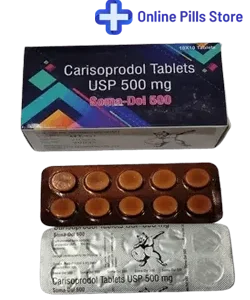
Soma Dol 500 mg
$129.00 – $249.00 Buy Now This product has multiple variants. The options may be chosen on the product page -
Sale!
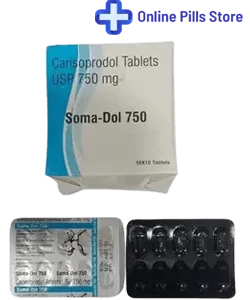
Soma-Dol 750 mg
$136.00 – $256.00 Buy Now This product has multiple variants. The options may be chosen on the product page -
Sale!
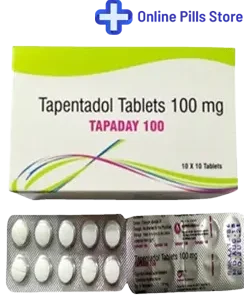
Tapaday 100 mg
$189.00 – $269.00 Buy Now This product has multiple variants. The options may be chosen on the product page -
Sale!
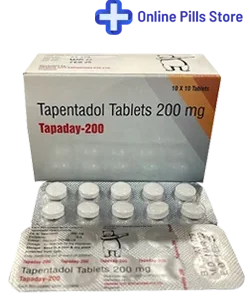
Tapaday 200 mg
$199.00 – $279.00 Buy Now This product has multiple variants. The options may be chosen on the product page -
Sale!
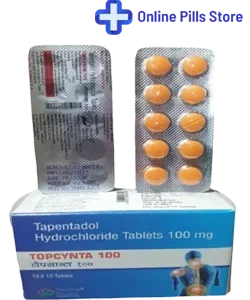
Topcynta 100 mg
$169.00 – $249.00 Buy Now This product has multiple variants. The options may be chosen on the product page
Disclaimer
The online Pills Store website is meant to tell our customers about our products and services. The content on the website, including but not limited to our texts, images, and graphics, is for informational and educational purposes only. It should not be substituted for professional medical advice, treatment, or diagnosis. We retail prescription medicines and thus advise all our customers to consult a doctor before getting any medicine or healthcare products mentioned or available on our website.
